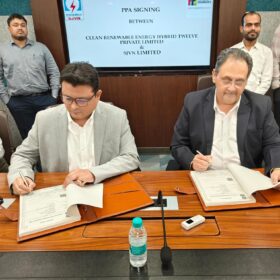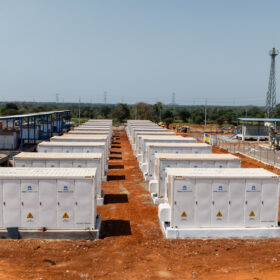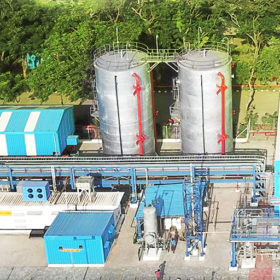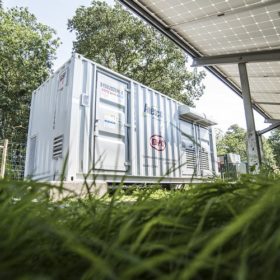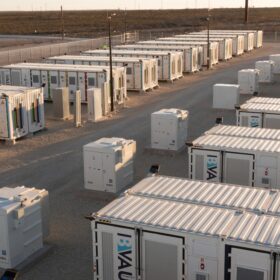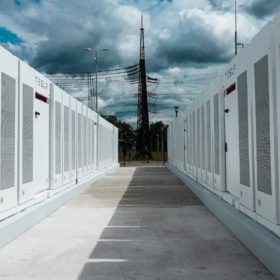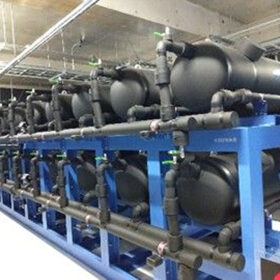Hero Future Energies secures PPA for 120 MW renewable-plus-storage project, signs green hydrogen MoU
Hero Future Energies has secured a power purchase agreement with SJVN to develop a renewable energy project backed with storage to supply 120 MW firm and dispatchable power. It has also signed an agreement for a $200 million green hydrogen production plant in Vietnam.
Tata Power to install 100 MW battery energy storage system in Mumbai
Tata Power will install a 100 MW battery energy storage system to facilitate peak load management in Mumbai’s power network. It will implement the system across ten strategically located sites in Mumbai, centrally monitored and controlled from its power system control center.
IndiGrid commissions India’s first regulated utility-scale standalone battery energy storage system in Delhi
The 20 MW/40 MWh utility-scale standalone battery energy storage system is designed to seamlessly integrate renewable energy into the distribution-level grid system, facilitate grid stabilization, manage peak power demand, and address various ancillary needs, stated IndiGrid.
The Hydrogen Stream: L&T sets up green hydrogen arm
L&T Energy Green Tech has incorporated a wholly owned subsidiary, L&T Green Energy Kandla Pvt Ltd (LTGEK), for development of green hydrogen and its derivative (including green ammonia) projects and to carry out other related business activities.
No funds disbursed under VGF scheme in FY25 as BESS projects fail to secure financial closure
Under the viability gap funding scheme, the central government pays for up to 30% of the capital cost for battery energy storage projects to help make these projects financially viable. The funds are disbursed in five tranches, including the first 10% upon financial closure of the project.
SPML Infra ties up with Energy Vault to manufacture and deploy grid-scale battery storage systems in India
SPML Infra Ltd has entered into a technology transfer agreement with USA-based Energy Vault for localized production and deployment of battery energy storage systems in India.
Karnataka awards 700 MWh in 1 GWh battery storage tender
The Karnataka Power Transmission Corp. Ltd has awarded 350 MW/700 MWh in its tender for 500 MW/1 GWh of battery energy storage systems.
Japanese energy supplier to use green hydrogen for district heating, power
Akasaka Heating & Cooling Supply says it will use green hydrogen produced at an unspecified location in Japan to produce heat and electricity for its Akasaka 5-chome district heating system in central Tokyo.
Replus to expand battery facility to 6 GWh
Replus Engitech will expand its battery energy storage and EV battery production facility to 6 GWh by the end of the next year. Currently, the company has 1 GWh of cell-to-pack manufacturing capacity in Pune.
Transforming discarded batteries into valuable resources
Rather than viewing battery recycling as waste management, it should be reframed as an economic and industrial opportunity. Advanced recycling techniques can recover up to 95% of lithium, cobalt, and nickel, reducing India’s reliance on raw material imports.
